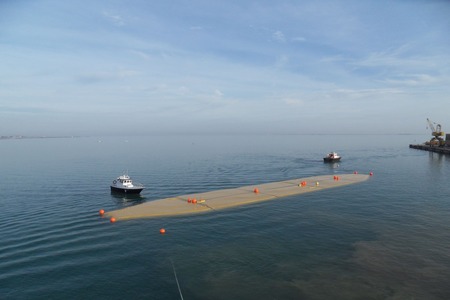
Tarpaulife Project develops alternative to PVC-coated fabrics
YarnsandFibers News Bureau 2024-10-30 16:56:22 – ItalyThe European Tarpaulife Project is working on large-area polyolefin-coated fabrics, such as polyethylene and polypropylene, that can be manufactured to compete with PVC-coated fabrics in terms of cost, strength, flexibility, waterproofing, and reduced environmental impact.
A key outcome of the project will be a facility at Ziplast’s location in Milan, Italy, capable of producing three-metre-wide polyolefin-coated fabric. This facility, once operational, will produce 250,000 square meters annually. The primary use of this new material is for water bags designed to transport large volumes of fresh water by sea.
Two water bags, each with a capacity of 2,500 cubic meters, will be produced as test samples. These bags will support freshwater reservoirs in the North Sea near Iceland and in the Mediterranean.
Within three years of the project’s conclusion, over 100 water bags are expected to be produced, storing more than two million cubic meters of water at three storage sites. This solution aims to prevent over 2,000 tons of PVC incineration and avoid releasing more than 13 tons of CO2.
The project also explores replicating these results in other areas, like truck covers and glacier tarpaulins, and will demonstrate the sustainability of the new material by comparing its environmental and economic benefits to traditional PVC-coated fabrics.
Market Intelligence
Ask for free sample Report

experience
Customer Base
dedicated team
Countries Served Worldwide









